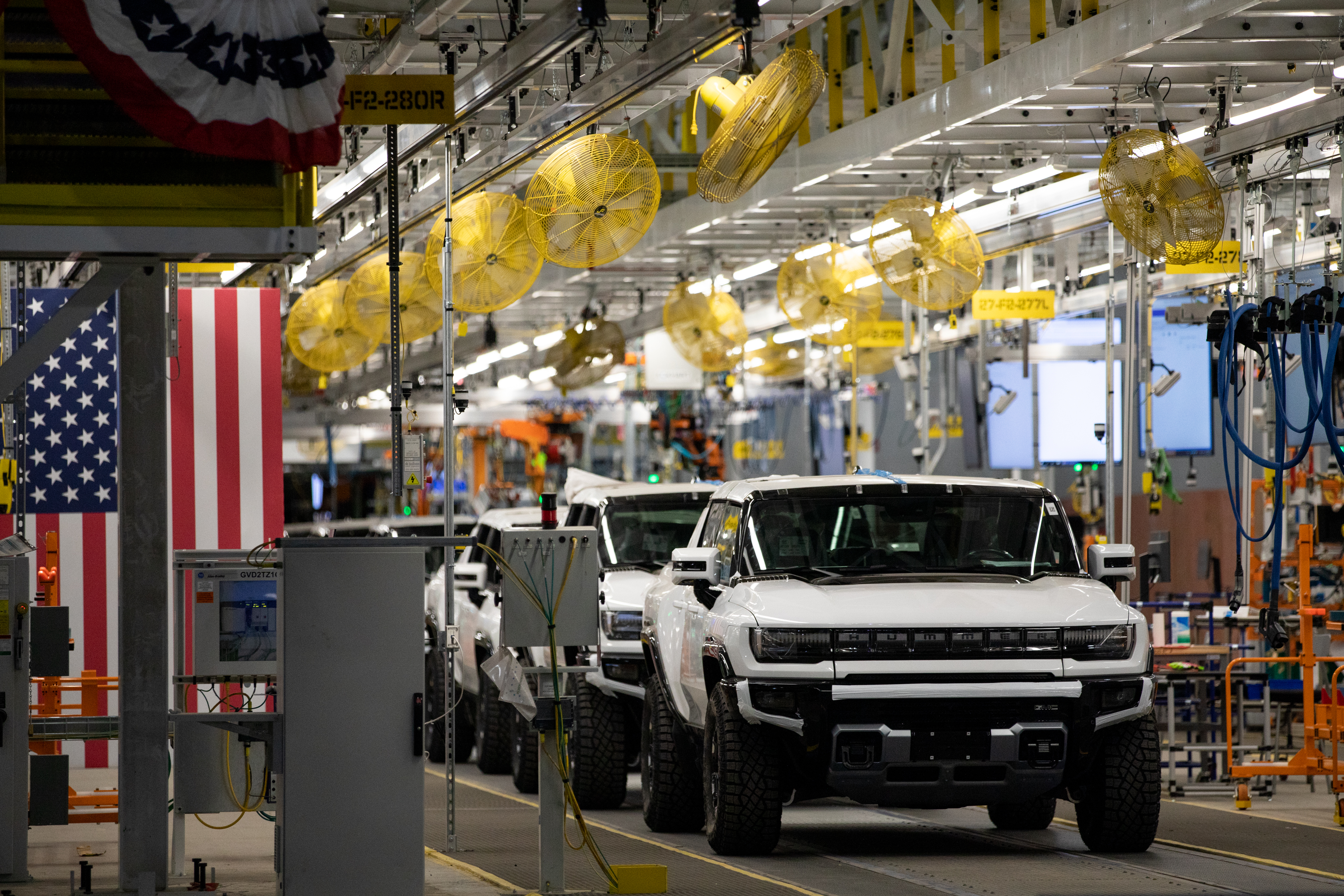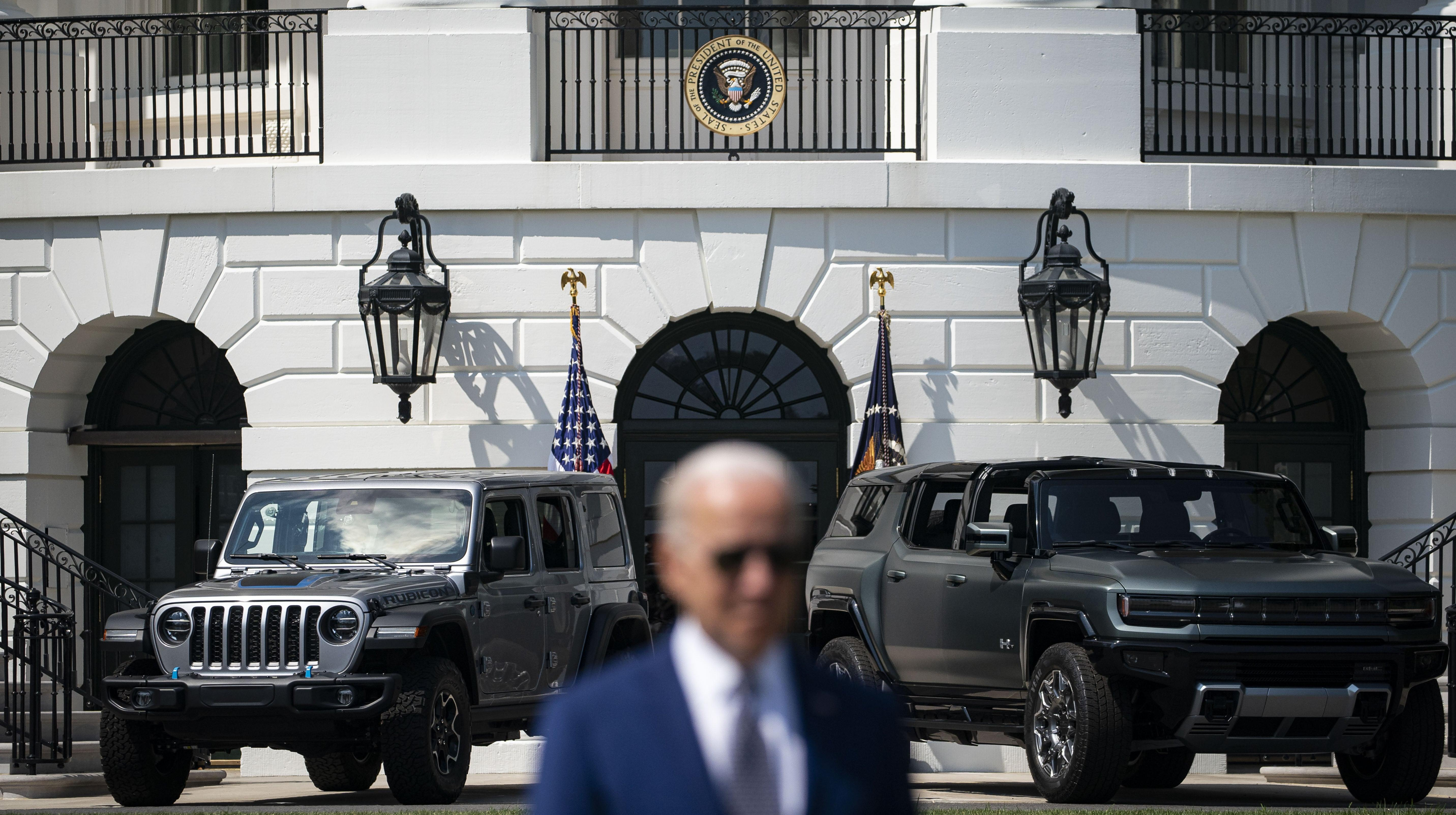The U.S. Is Making The Same Mistakes With EVs That It Made With Gas-Powered Cars
Bigger, heavier and faster EVs are being framed as the lesser of two evils, but there's a good case against this.
The auto industry is in the middle of a big shift to EVs, so now would be a good time for it to hunch down, hands on knees, and catch its breath. Or if the auto industry won't, then we, the buyers, should because U.S. automakers may be rushing us down the wrong way with bigger, faster but not better EVs.
That's what the Atlantic claims in a report outlining the downsides of the EV transition in America, which I encourage you to go read since it lays out how automakers are repeating the same cycle of excess that got us into trouble in the first place.
The gist of it is that electric cars are better for the environment but they come with their own unique problems that we're not trying to fix, including size and weight, speed and safety, and the relative waste of resources (battery metals) that comes with big fast EVs.
Some of those problems are hand-me-downs from combustion cars, which went from once-popular sedans to large trucks and SUVs, as the Atlantic explains:
But automakers' focus on large, battery-powered SUVs and trucks reinforces a destructive American desire to drive something bigger, faster, and heavier than everyone else.
[...]
The forthcoming electric Chevrolet Silverado EV, for example, will weigh about 8,000 pounds, 3,000 more than the current gas-powered version. And there will be a lot of these behemoths: A recent study from the U.S. Department of Energy shows that carmakers are rapidly shifting their EV lineups away from sedans and toward SUVs and trucks, just as they did earlier with gas-powered cars.
The timeline of EV production in the U.S. has mostly been overlooked as the microcosm that it is: electric cars have gone through the same progression that ICE-powered cars went through. From small to big, slow to fast. Think of the GM EV1... then the GMC Hummer EV. How did that harmless little wedge from the 1990s beget the monstrous (yet massively popular) Hummer EV?
The answer is usually something about consumer demand, or about changes in buyer preference. People want bigger, faster cars; people buy bigger, faster cars. That's why U.S. automakers keep giving them to us, but it's not that simple. Carmakers reportedly played a role here, too:
Indeed, carmakers are likely to claim that their EV designs and marketing pitches merely reflect the size and speed that Americans seek when considering their next vehicle. The electrification of America's vehicle fleet will happen faster, one could argue, the more consumers view EVs as objects of desire, rather than as obligatory concessions to the greater good. But such claims treat car demand as fixed, overlooking ways in which carmakers' multibillion-dollar advertising budgets shape consumer preferences.
Not to mention the fact that blaming consumer demand is a clever way of overlooking the legal (emissions) loophole bigger cars have enjoyed since the 1960s. And that includes full-size crossovers, trucks and SUVs. This mindset is now affecting EVs, as well. When was the last time you saw a truly small EV in America? I saw a new Chevy Bolt yesterday. It was small, but not that small.
Or when was the last time instant torque wasn't a part of the sales pitch for EVs? I would take range over speed any day. I guess I just want to know where the small, not fast cars went? And why EVs in the U.S. haven't managed to hit the reset button on size and weight.
I miss the EV1, the first Tesla Roadster, and the original Honda Insight. The Honda e is still around overseas, and yet I miss it, too. If you miss those cars, go read the article from the Atlantic. At least you'll know there are others wondering why modern EVs are so needlessly big, heavy and dangerously fast.

